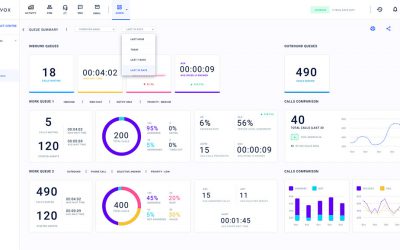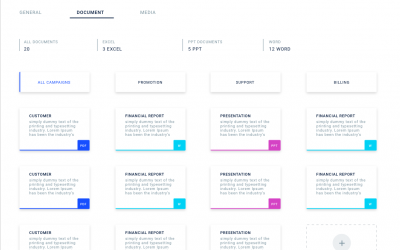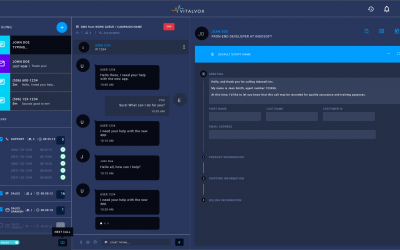In an era where artificial intelligence (AI) is transforming customer service, a well-optimized knowledge base is essential. Not only does it empower AI-driven tools to deliver faster and more accurate responses, but it also enhances the customer experience by making valuable information easily accessible. In this guide, we’ll explore how to optimize your knowledge base for AI integration, ensuring both efficiency and effectiveness at every step.
Why AI-Optimized Knowledge Bases Are Essential
AI-driven tools like chatbots and virtual assistants rely heavily on structured, high-quality data. When your knowledge base is optimized for AI, it becomes a more efficient resource, supporting these tools to reduce response times and improve accuracy. In addition, by organizing your content in a way that’s easy for AI to interpret, your business can improve self-service options, streamline support, and even gain insights into evolving customer needs.
Key Steps to Optimizing Your Knowledge Base for AI
1. Organize Content with Clear Categories and Tags
For AI to parse your knowledge base effectively, information must be well-organized. By creating categories and subcategories that align with common customer queries, and by adding relevant tags to each entry, you enable AI to locate and retrieve the most accurate answers, enhancing its ability to meet customer needs instantly.
- Use Intent-Based Categorization: Structure content around common intents (e.g., billing, troubleshooting, account setup) to simplify query matching.
- Implement Multi-Layered Tags: Including both primary and secondary tags further refines the search process for AI, making responses more targeted and accurate.
2. Standardize Language for Consistency
AI performs better when it has a consistent lexicon to work with. Therefore, use clear and standardized language across all knowledge base articles to prevent misinterpretation and enhance response accuracy.
- Avoid Ambiguity: Use terms that are widely understood, and avoid industry jargon unless necessary. If you must use technical terms, define them within the content.
- Create a Glossary: Including a glossary can help AI understand industry-specific terms, leading to better performance across a range of inquiries.
3. Adopt a Q&A Format for Better Scanning
Since AI typically searches for answers within a question-and-answer structure, formatting knowledge base entries in a Q&A style helps AI tools quickly locate the answers users need.
- Break Content into Bite-Sized Pieces: Shorter, direct answers make it easier for AI to find relevant information.
- Use Commonly Asked Questions: By writing entries based on FAQs, you increase the likelihood of matching with customer queries.
4. Utilize Metadata for Enhanced AI Readability
Metadata, such as keywords and summaries, enhances AI’s ability to interpret and retrieve information. It also helps with search engine optimization, making your knowledge base more accessible to users who may search for solutions directly.
- Add Summaries and Descriptions: Summaries provide AI with quick context, which speeds up the retrieval process.
- Incorporate SEO-Friendly Keywords: Including relevant keywords in metadata improves both AI indexing and customer accessibility in search engines.
5. Regularly Update Your Content
AI learns from the data it interacts with, so it’s crucial to ensure that your knowledge base remains up-to-date. Outdated information can lead to inaccurate responses and frustrate customers. Therefore, regular updates keep information current and useful.
- Establish a Review Schedule: Regular reviews help ensure that content remains accurate and relevant.
- Integrate Customer Feedback: Analyzing feedback from customer interactions can help identify content that may need updating or clarification.
6. Optimize for NLP (Natural Language Processing)
Since AI tools use Natural Language Processing (NLP) to interpret and respond to queries, optimizing your content for NLP can increase the likelihood that AI will retrieve accurate answers.
- Use Synonyms and Variants of Keywords: Including common synonyms helps AI match varied customer wording.
- Incorporate Conversational Phrasing: Writing in a conversational tone better matches the way users phrase queries.
Benefits of an AI-Optimized Knowledge Base
With a well-structured, AI-friendly knowledge base, businesses can significantly improve their customer service. For instance, AI can respond more accurately and quickly, resulting in better support, increased customer satisfaction, and fewer support tickets. Additionally, an optimized knowledge base can help your business gain insights into customer behavior and trends, which informs further improvements.
Taking Action: Start Optimizing Your Knowledge Base for AI Today
An AI-optimized knowledge base can transform how your business delivers support and interacts with customers. By following these steps, you’re setting the foundation for more effective and efficient AI-driven customer service. Need guidance on implementing these strategies? Contact us today to learn how we can help you build a knowledge base that’s ready for the future.
Contact Us
Ready to start optimizing your knowledge base for AI? Reach out to our team today for expert guidance on how to get started. We’re here to help you enhance your customer service experience with cutting-edge AI solutions!



